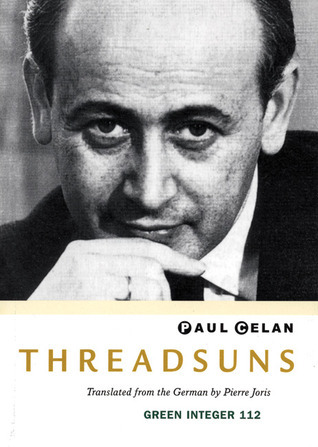What do you think?
Rate this book


271 pages, Paperback
First published January 1, 1968
In the early sixties, that is, midway through Paul Celan's writing career, a radical change, a poetic Wende, or turn, occurred, later inscribed in the title of the volume Atemwende | Breathturn, heralding the poetic he was to explore for the rest of his life. His poems, which had always been highly complex but rather lush, with an abundance of near-surrealistic imagery and sometimes labyrinthine metaphorically - though he vehemently denied critics' suggestion that his was a "hermetic" poetry - were pared down, the syntax grew tighter and more spiny, and his trademark neologism and telescoping of words increased, while the overall composition of the work became much more serial in nature. That is, rather than insisting on individual, titled poems, he moved toward a method of composition by cycles and volumes.
Sleepmorsels, wedges
driven into the nowhere:
we remain equal to ourselves,
the turned-
about roundstar
agrees with us.
*
Eternities, died
over and above you,
a letter touches
your still un-
wounded fingers,
the shining forehead
vaults hither
and beds itself in
odors, noises.
*
Throw the solar year, to which you cling,
over the heart railings
and row to, starve yourself away, copulating:
two germ cells, two metazoons,
that's what you were,
the inanimate, the homeland,
now requests return - :
later, who knows,
one of you two, transformed,
may reemerge,
a slipper animalcule,
ciliated,
in the shield.
*
Dysposition, I know
your knives swarming like
minnows,
closer to the wind than I
nobody sailed,
nobody more than I
was cut by the hail squall
to the seaclear knived
brain.
*
Imagine:
the moorsoldier from Masada
teaches himself homeland, in
the most inextinguishable way,
against
all barbs in the wire.
Imagine:
the eyeless without shape
lead you free through the throng, you
grow stronger and
stronger.
Imagine: your
own hand
was held once
more this
into life re-
suffered
piece of
inhabitable earth.
Imagine:
that came toward me,
awake to the name, awake to the hand,
forever,
from what cannot be buried.
- Imagine